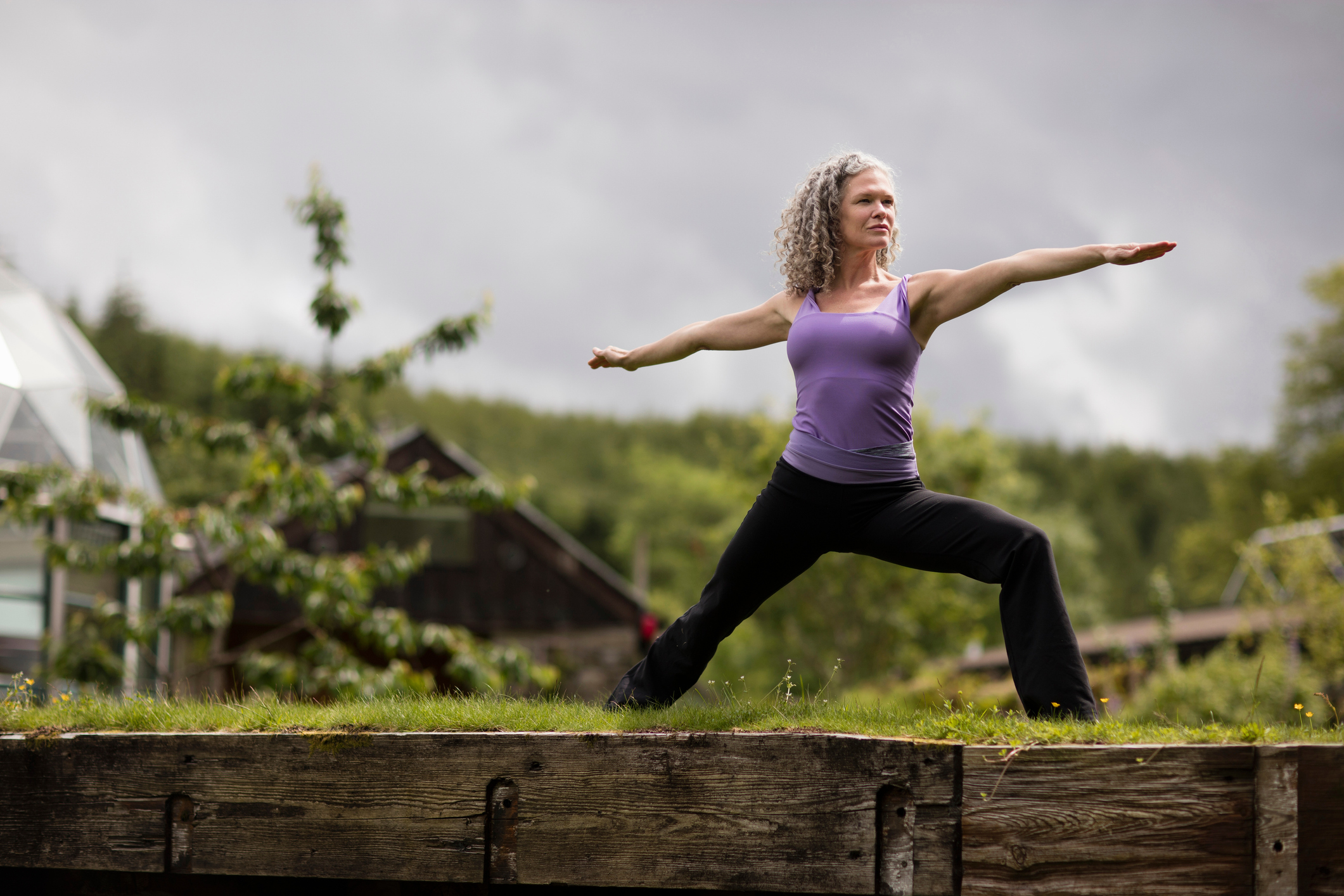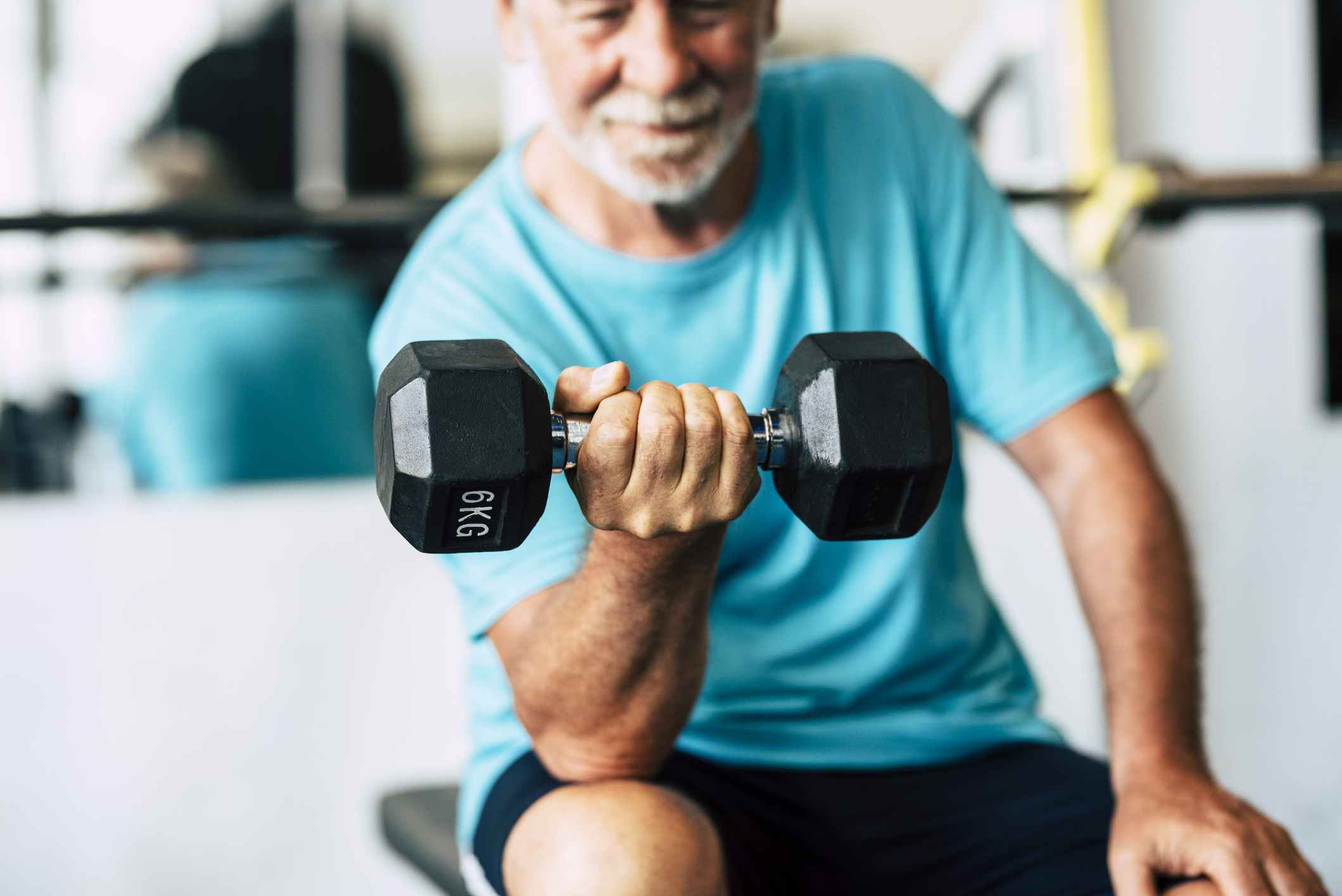Aging Well: 10 Things You Should Know
If you're committed to aging well, these tips can save on healthcare costs and make your retirement more fulfilling.


Profit and prosper with the best of Kiplinger's advice on investing, taxes, retirement, personal finance and much more. Delivered daily. Enter your email in the box and click Sign Me Up.
You are now subscribed
Your newsletter sign-up was successful
Want to add more newsletters?

Delivered daily
Kiplinger Today
Profit and prosper with the best of Kiplinger's advice on investing, taxes, retirement, personal finance and much more delivered daily. Smart money moves start here.

Sent five days a week
Kiplinger A Step Ahead
Get practical help to make better financial decisions in your everyday life, from spending to savings on top deals.

Delivered daily
Kiplinger Closing Bell
Get today's biggest financial and investing headlines delivered to your inbox every day the U.S. stock market is open.

Sent twice a week
Kiplinger Adviser Intel
Financial pros across the country share best practices and fresh tactics to preserve and grow your wealth.

Delivered weekly
Kiplinger Tax Tips
Trim your federal and state tax bills with practical tax-planning and tax-cutting strategies.

Sent twice a week
Kiplinger Retirement Tips
Your twice-a-week guide to planning and enjoying a financially secure and richly rewarding retirement

Sent bimonthly.
Kiplinger Adviser Angle
Insights for advisers, wealth managers and other financial professionals.

Sent twice a week
Kiplinger Investing Weekly
Your twice-a-week roundup of promising stocks, funds, companies and industries you should consider, ones you should avoid, and why.

Sent weekly for six weeks
Kiplinger Invest for Retirement
Your step-by-step six-part series on how to invest for retirement, from devising a successful strategy to exactly which investments to choose.
Aging well requires you to stay on your toes. Health information ping pongs… drink coffee, but, is it organic? Red meat is OK once a week, or never at all? Alcohol is good for your heart — but now it’s said to cause cancer. There are some tried-and-true tips that have withstood the test of time because they really do help prevent dementia (see #9), add to the quality of our health and life (don’t smoke!) and increase the chance of a happy retirement. Here are 10 of them:
1. Aging well means reading food labels
Ultra-processed foods are linked to gastrointestinal issues, heart disease, Type 2 diabetes, and some cancers and are also associated with food addiction. By now we know to avoid high fructose corn syrup, hydrogenated oils, added sugars and sodium; also avoid gum acacia, ester gum, soy protein isolate, soy lecithin and artificial anything.
The FDA recently said Red Dye No. 3 will be banned in foods by 2027 because it’s linked to cancer in rats. Red dye 40 and Yellow 5 are also questionable. The best strategy is to shop the outer aisles of grocery stores where you find fruits, vegetables, lean meats and fish and dairy. A different way to approach healthy eating is to focus on adding beneficial foods into your diet (plants and protein), so you’re filling up on what’s good for you and less likely to reach for chips and unhealthy dips.
From just $107.88 $24.99 for Kiplinger Personal Finance
Become a smarter, better informed investor. Subscribe from just $107.88 $24.99, plus get up to 4 Special Issues

Sign up for Kiplinger’s Free Newsletters
Profit and prosper with the best of expert advice on investing, taxes, retirement, personal finance and more - straight to your e-mail.
Profit and prosper with the best of expert advice - straight to your e-mail.
2. Get consistent, high-quality sleep
Sleep is an underrated way to increase healthspan and longevity. It’s free, requires no talent, lowers anxiety, boosts memory and mood, lowers the risk of Type 2 diabetes, dementia and Alzheimer’s, strengthens immunity, helps clear out potentially neurotoxic waste and protects the heart. Stress and bad habits get in the way. Reserve the bedroom for sleep, not TV, work or meals in bed. Create a cave that’s cool (under 70°F) and dark. Spend 10-30 minutes in sunlight every morning and avoid blue light from screens at night. After 2 p.m., skip caffeine, which blocks drowsy signals in the brain. Lastly, alcohol may help you fall asleep, but it’s one of the biggest sleep disrupters there is.

3. Connect with others
The former Surgeon General declared social isolation an epidemic, equating the long-term health effects to smoking or obesity. Loneliness correlates to a 60% risk of premature death. It weakens the immune system and increases the risk of depression, anxiety, suicide, heart disease, dementia and stroke.
He also warned about the perils of “digital silos,” citing the valuable pillars of community: relationships, purpose and service, the core virtue being love. His message? Don’t go it alone. Those with more social ties lower their cortisol–the so-called “stress hormone." Close relationships are the single most important factor in predicting long-term happiness and health — more than wealth, intelligence, genes or social status. Jane Fonda recommends taking art classes for connection and to help the brain. She’s 87. We’ll have what she’s having.

4. Reduce stress
Stress can show up at work, taking care of daily business or even having a political conversation with in-laws. Over the long haul, stress wreaks havoc on health and longevity. Researchers have found that women with higher perceived levels of stress aged 10 years faster than those with normal stress. Some doctors look at health as resiliency. “The true measure of health,” says Jackson, Wyo.-based Dr. Molly Maloof, “is all about bouncing back after getting hit with a stressor.” She suggests breathwork, yoga and meditation with a mantra, which has been shown to reduce the breathing rate and lower blood pressure. “There are tons of free apps,” she says. “There’s really no excuse.”
5. Get a checkup
Stay on top of your health, early and consistently. In the long run, checkups and screenings forestall death as they flag family history issues and test for their arrival in you. One study found that a 10 percentage-point increase in cancer screenings can prevent deaths in large numbers of those with lung, colorectal, breast and cervical cancers.
Blood pressure monitoring, diabetes screenings, bone density scans, flu shots and other vaccines as well as mental health checkups can catch and track problems early and along the way. And remember, many preventive screenings are required to be covered by insurance, including mammograms and some other cancer screenings and blood tests. Take advantage of the preventative services covered by Medicare.

6. Pick up some weights
Exercise helps maintain a healthy weight and keeps the heart and brain healthy. As people age, they naturally lose muscle; it’s called sarcopenia. Frailty is a strong predictor of disability and death in older people because you can’t stop a fall if you’re frail. Strength training is one of the most effective ways to prevent muscle loss as we age; a six-week program can increase muscle quality and the ability to function. There are plenty of mobile apps like the 7 Minute Workout to lead a beginner through a strength workout. It’s never too late to start. Even modest changes in physical fitness in previously sedentary people lead to major improvements in health and a lowered risk of death.
7. Cut way back on alcohol
So…. You’ve probably read recent headlines stating alcohol is not exactly healthy for you. It’s now tied to at least seven types of cancer, and the Surgeon General called for a warning label on packages, as with tobacco. Excessive alcohol consumption is a risk factor for dementia and cardiovascular health and not great for mood or motivation. It also disrupts sleep. No level of alcohol is risk-free. There are plenty of ways to cut back. Non-alcoholic beers, wines and “spirits” can substitute for the hard stuff to help you enjoy a “mocktail hour.”

9. Listen up!
You may be surprised to hear (ahem) that hearing loss contributes to dementia risk. The Lancet Commission, which says that up to 45% of dementia may be preventable, reports that hearing loss contributes to 7% of dementia cases. Hearing loss creates social isolation that can lead to anxiety, depression, strained relationships, and safety risks such as not hearing alarms or doorbells.
Hearing aids are unfortunately stigmatized, but fortunately becoming more mainstream. They’ve been available without a prescription since 2022, and last year the Food and Drug Administration also approved Apple’s Hearing Aid Feature (HAF) as the first over-the-counter hearing aid software. It works with AirPods Pro 2 earpods and iOS 18-compatible iPhones and iPads. Stay in the conversation and help your health and happiness by listening to the people around you.
10. Consider hormone replacement therapy
HRT has gotten a bad reputation over the years — mostly after a 2002 study that physician Peter Attia says “demonized” the use of hormones by menopausal and postmenopausal women. But, says Attia, author of Outlive: The Science and Art of Longevity, the positive benefits were rarely communicated to the public. Not only is HRT the most effective treatment for menopause symptoms, according to the North American Menopause Society, but it also reduces the risk of death from heart disease and death, and it protects our bones. As Attia puts it: There have been zero additional breast cancer deaths due to HRT, “but I’m positive we could point to additional deaths due to hip fractures.”
And by the way, men can benefit as well from male hormone therapy.
Note: This item first appeared in Kiplinger Retirement Report, our popular monthly periodical that covers key concerns of affluent older Americans who are retired or preparing for retirement. Subscribe for retirement advice that’s right on the money.
Read More
Profit and prosper with the best of Kiplinger's advice on investing, taxes, retirement, personal finance and much more. Delivered daily. Enter your email in the box and click Sign Me Up.

-
 Nasdaq Leads a Rocky Risk-On Rally: Stock Market Today
Nasdaq Leads a Rocky Risk-On Rally: Stock Market TodayAnother worrying bout of late-session weakness couldn't take down the main equity indexes on Wednesday.
-
 Quiz: Do You Know How to Avoid the "Medigap Trap?"
Quiz: Do You Know How to Avoid the "Medigap Trap?"Quiz Test your basic knowledge of the "Medigap Trap" in our quick quiz.
-
 5 Top Tax-Efficient Mutual Funds for Smarter Investing
5 Top Tax-Efficient Mutual Funds for Smarter InvestingMutual funds are many things, but "tax-friendly" usually isn't one of them. These are the exceptions.
-
 It's Time to Rethink What 'Aging Well' Means
It's Time to Rethink What 'Aging Well' MeansDon’t fall into the trap of thinking there is a "right way" to age. Here's how to reframe aging in a healthy, achievable way.
-
 The New Rules of Retirement
The New Rules of RetirementPopular guidelines about how to save, invest and spend need to be updated and personalized to ensure you'll never run out of money.
-
 I’ve Played 1,300-plus Golf Courses: These Are the 4 on My 'Must-Play' List for 2026
I’ve Played 1,300-plus Golf Courses: These Are the 4 on My 'Must-Play' List for 2026These four luxury golf courses offer an extraordinary experience for players this year.
-
 What to Do If You Plan to Make Catch-Up Contributions in 2026
What to Do If You Plan to Make Catch-Up Contributions in 2026Under new rules, you may lose an up-front deduction but gain tax-free income once you retire.
-
 You Saved for Retirement: 4 Pressing FAQs Now
You Saved for Retirement: 4 Pressing FAQs NowSaving for retirement is just one step. Now, you have to figure out how to spend and maintain funds. Here are four frequently asked questions at this stage.
-
 3 Trips to Escape the Winter Doldrums, Including An Epic Cruise
3 Trips to Escape the Winter Doldrums, Including An Epic CruiseThree winter vacation ideas to suit different types of travelers.
-
 What Science Reveals About Money and a Happy Retirement
What Science Reveals About Money and a Happy RetirementWhether you’re still planning or already retired, these research-based insights point the way to your best post-work life.
-
 How to Leave Different Amounts to Adult Children Without Causing a Rift
How to Leave Different Amounts to Adult Children Without Causing a RiftHere’s how to leave different amounts to adult children without causing a family rift.